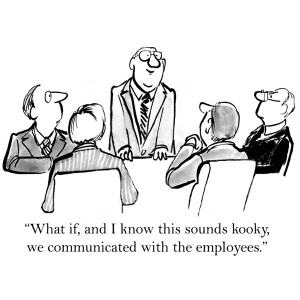Getting Real About Freedom
There’s a huge confusion that’s causing a lot of pain in organisations. It’s the idea that ‘freedom‘ means ‘freedom from consequences‘. It doesn’t. It means ‘you get to choose, and the consequences are yours‘.
Freedom is not liberty or licence. It’s not escape. A person becomes free when they are willing to stand up and say ‘this is my situation, I am taking ownership of it, and of whatever happens next.’ The moment this occurs, choice comes back into play. The boat gets a motor. The hot-air balloon’s fire-thing starts up again. We have agency, and it feels good. Energy.
This is the principle we use when we help our clients with how their organisations are designed and lead….that people want freedom. They want choice. They want a level of challenge that pushes them without blowing their minds. And they would like to know how things work so they can make more informed choices.
Leaders at all levels have the opportunity to give people freedom. But it’s not always taken. It’s hard to trust, and decades of high control leading to unaccountable behaviour simply reinforces this, and it’s not just the managers.
So how do we create freedom?
Through conversations and other communication that creates clarity for all on who is delivering what, and how roles fit together. And decisions when decisions are required so people can get on with it.
People cannot make choices about their own way to get things done if they don’t know what ‘done’ is or how things work.
But above all, this requires a willingness to trust again. This is the hardest part, and it applies to everyone. For managers, it’s trust that people will take ownership. And for employees, that their managers will let them take ownership. This is the foundation of any successful enterprise.
Clarity and trust.
Pre-requisites for freedom.




